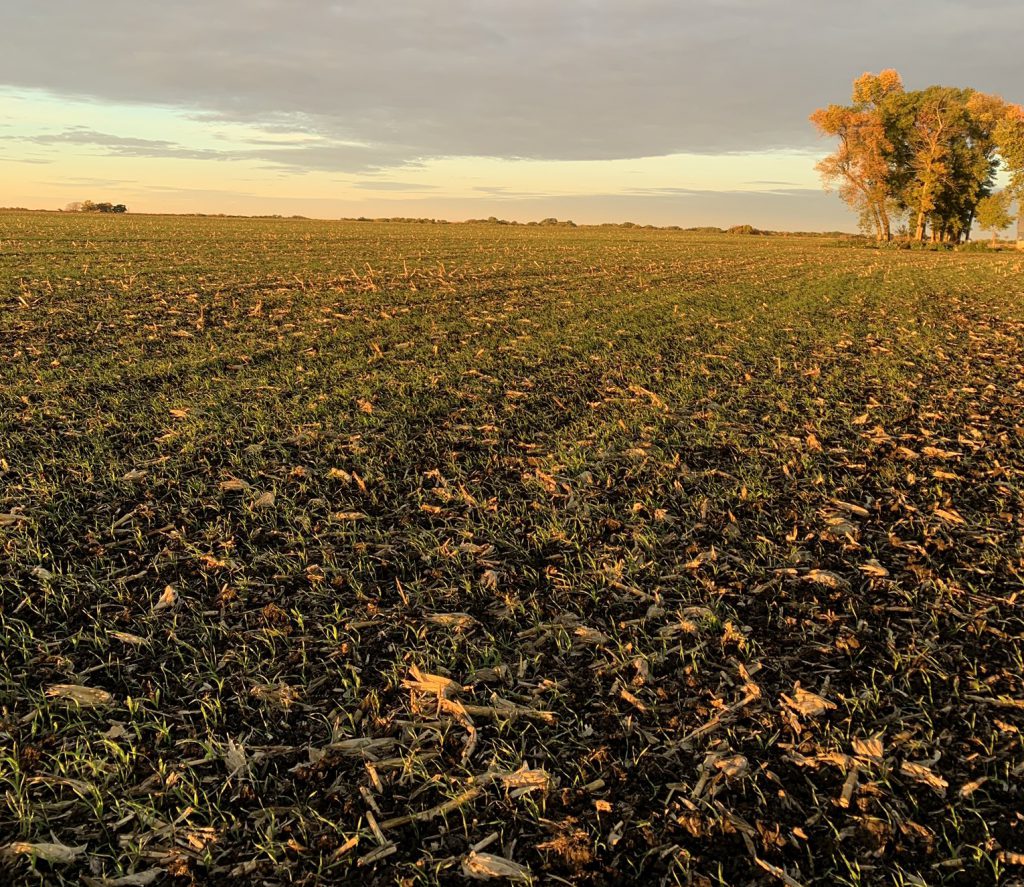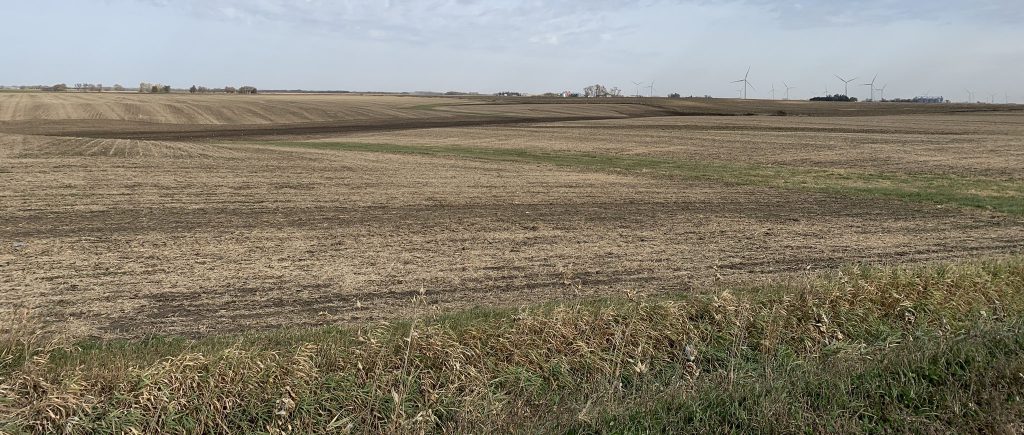
Two and a half weeks start to finish was a quick harvest season for Kossuth County farmers Matt and Nancy Bormann. They put the additional time saved with the quick harvest to good use this fall to plant cover crops, get their strips tilled and even improve a waterway.
Given difficult growing conditions for much of the state, the Bormann’s aren’t complaining. It was drier than normal, but the lack of heavy rain early meant they didn’t lose yield to drown outs, Nancy said, meaning they harvested whole fields. They also missed the derecho.
Their yields were above trend line by about 20 bu. per acre in corn, and 10 bu. per acre in beans. They attribute some of that gain to strip-till. “Strips performed phenomenally for us this year,” Matt said. “They were hands down the best yield.”
The seed corn came out around Labor Day, and the rye seed went on with a fertilizer application in mid-September, giving that cover crop a good start. “More rye went on with a drill and then it turned warmer, which should give cover crops a boost,” Nancy said.

They also experimented with cover crop seeding rates for weed suppression. “There’s a definite place for cover crops in weed control,” Matt said. “I’ll hardly see a velvet leaf or other weed types in the rye, but water hemp is another story. I went to 75 pounds of rye versus 60 on one of the farms to see if we could choke out some of the tougher weeds next year.”
Soil conditions led to excellent progress with their strip tilling system, which will simplify planting next spring. “The strip-tilling implements worked perfectly,” Matt said. “The ground is dry, so the strip bar is working the ground really nice.”
The Bormann’s had weather on their side to reshape a 1,900-foot waterway. “It wasn’t shaped right, had washouts and holes in it, and we really needed to get it done,” Nancy said. “We had it designed, hired an excavating company, and the bulldozers came in and we got it seeded down. Soil erosion is a primary benefit, but it’s going to be much easier to farm and drive through,” Nancy said.

The Bormann’s explained to their landlord the benefits of the waterway project to get them onboard. “They were interested in improving the farm and engaged once they understood the benefits,” Nancy said. “They drove to the farm one day during the excavation to see how the farm was changing. That was neat.”
For 2021, the Bormann’s plan to expand their 4R Plus practices. “We’re seeing the benefits, not by guessing at yields but from actual yield checks, from our cover crops and tillage practices,” Nancy said. “And we’ll have less soil washing through the waterway we fixed.”
“We learn something new every season and are happy to share what we know. Adopting 4R Plus practices helps us to be more efficient and competitive,” said Matt.
Click here to ask Matt and Nancy a question about their farming operation.
